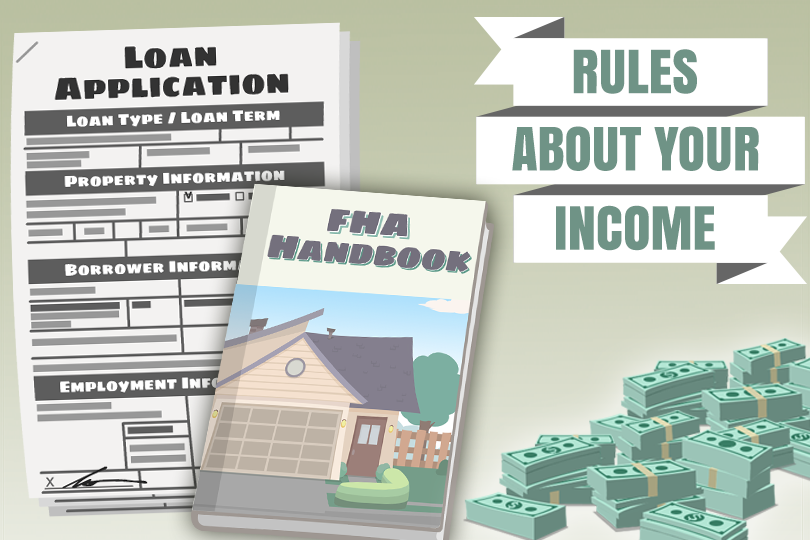FHA Loan Rules for Income: Investments, Trusts, and More

Some types of earnings don’t qualify. You can’t use any cash flow considered unlikely to continue, such as earnings from eBay sales.
You can’t use credit card cash advances to make your down payment or use money from unverified sources to qualify for a mortgage. For the rest, your lender is tasked with verifying and approving your monthly income.
FHA Loan Rules for Investment Income and Trusts
Some might wrongly assume that you can’t use income from non-employment sources to qualify, but that is not necessarily true.
For example, you can use interest or dividends from investments, payments as the holder of a promissory note, or trusts to qualify for a home loan IF those funds meet FHA requirements.
According to the HUD 4000.1, the FHA Lenders’ Handbook, “The Mortgagee must verify and document the Borrower’s Investment Income by obtaining tax returns for the previous two years and the most recent account statement.”
When calculating the investment income, your lender will subtract any assets “used for the Borrower’s required funds to close” from the total amount.
The FHA also spells out the rules for income from trusts, which requires the loan officer to verify the trust agreement.
Verification Required
When using investment income or other types of non-employment earnings, your FHA lender must “verify and document the frequency, duration, and amount of the distribution by obtaining a bank statement or transaction history from the bank,” according to HUD 4000.1.
When it comes to trust payments, you need evidence of regular payments from the trust and that such payments will continue for the first three years of the mortgage.
Income From Promissory Notes
Another type of income addressed in these rules? The income you might receive as the payee of a promissory note.
Your lender will need documentation to approve this income, including a copy of the note with specific details of the payment arrangement, evidence you have received this income for the previous 12 months,” and any guarantee these payments will continue for the first three years of your new loan.
------------------------------
RELATED VIDEOS:
There's a Difference Between APR and Interest Rates
Choose Your Mortgage Lender Carefully
Getting Started With Your FHA Loan Application

Do you know what's on your credit report?
Learn what your score means.







